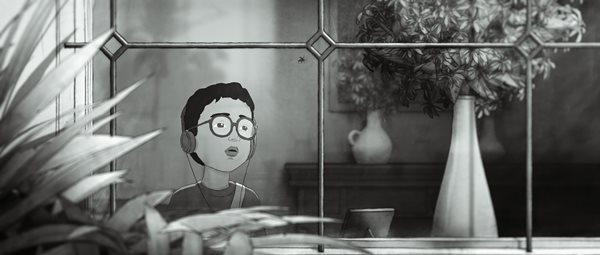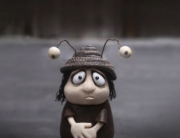
In animated films, there are no limits to the imagination because anything can come to life: singing and dancing animals, artifacts weighing moral dilemmas, or even Emotions dealing with emotions. Within the range of conceivable possibilities, I Lost My Body has created one of the most truculent and entrancing characters of the year: a disembodied hand wandering Paris to find its body.
Directed by Jérémy Clapin, it was rewarded with the Grand Prize in the International Critics’ Week at the 2019 Cannes Film Festival, becoming the first animated feature that achieved such recognition to do so. Netflix acquired distribution rights, granting a wider accessibility for a movie that can hardly compete commercially with the highly marketed animated works from big studios omnipresent in theaters. This film is definitely for a mature audience.
The first great surprise here is to discover immediately how convincing the physical and sentimental journey of a hand can be. After escaping from a morgue in a tense scene where the hand tries to reach an open window without being noticed, he (it’s a masculine hand, and it feels strange to say “it” in this case) takes a moment to rest. The hand places his palm along the edge of a wall and adjusts his fingers as if they were legs. This humanizing effect is a wonder because the hand always moves gracefully without contradicting natural laws, unless you start asking hard questions. What does it takes for a hand to die? Does he sees the world or does he just have a tactile sense of it? The film won’t clear your doubts. Fortunately, his adventures are captivating enough to focus on deeper themes.
The survival of the hand in the outside world will depend on the evasion of many dangers, all adapted to his scale. In a horrifying sequence, he fights hungry rats on a subway in one of the highlights of the film. Overall, the hand’s odyssey through Paris becomes emotional. And here comes another question: Can a hand have feelings? That’s something the film explores thoroughly.
Clapin doesn’t focus solely on the hand’s misfortunes, even if this is the most indelible visual aspect. This is also the story of Naoufel (voiced by Hakim Faris), a pizza delivery boy who falls in love with a young woman, Gabrielle (Victoire Du Bois), after a conversation via an intercom when he delivers her pizza. They never met directly, but he can’t leave the building on his motorcycle because of the rain. She expresses concern for him, and they share random thoughts and jokes while he’s in the lobby and she’s in her high-rise apartment.
Her kindness seems new to him; he was orphaned as a boy and has since lived with his distant uncle and a roudy cousin. He becomes inspired to find a way to meet Gabrielle again in a way where she won’t suspect who he is; he’s timid and lacks confidence.
Flashbacks in black-and-white provide key information about Naoufel’s childhood, the life with his loving parents, his boyhood desire to become a pianist and an astronaut, and a useful lesson on how to catch a fly with one hand that will mark his destiny considerably.
Moments of quietness and action are visually impressive. One minute you see the hand crossing a highway using an umbrella to fly, and in the next Naoufel builds an igloo on a roof to impress Gabrielle. The lyric potency of the images is absorbing, making this one of the most beautiful animated films of late.
The intense expression of loss and romanticism make the script exceptional. A physical amputation is perhaps the most direct symbol of absence, but I Lost My Body also exposes invisible, metaphysical amputations that define who we are, making this one animated film that should not be overlooked.
















Leave A Comment